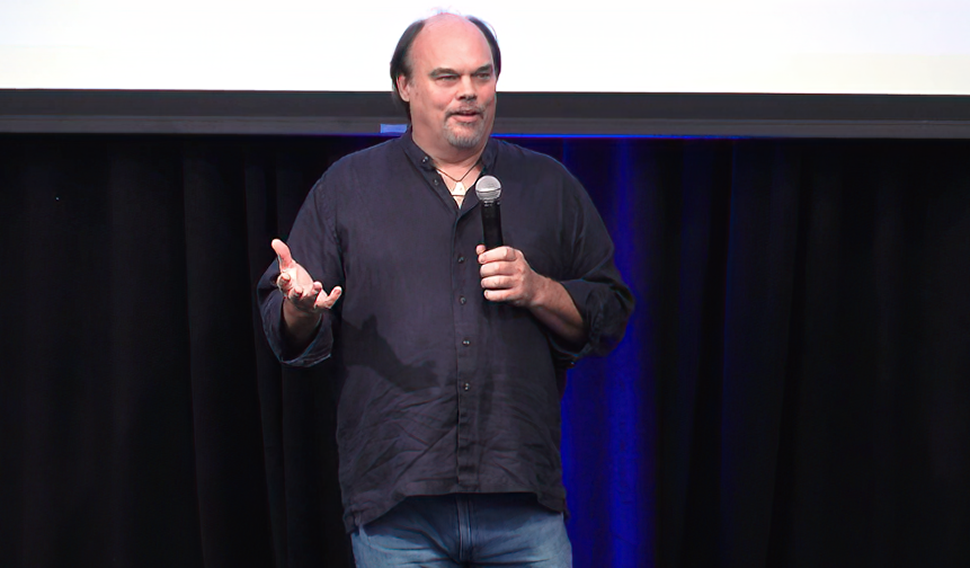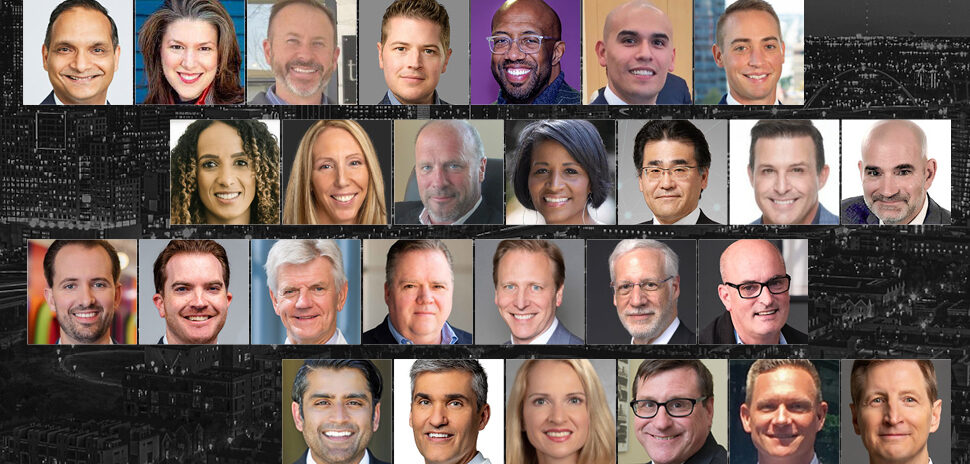Why does serial entrepreneur Dave Copps start so many companies? His answer: He’s unemployable.
Copps and partner Chris Rohde founded Worlds, a Dallas-based spatial artificial intelligence company that’s reinventing how organizations see and understand their worlds through live AI-powered models.
Last year the co-founders announced that Worlds—a spinout of Hypergiant Sensory Sciences—was coming out of stealth with a $10 million Series A round. They had big plans in tow as well: a goal of building AI-models that give businesses a new way to view their physical world.
At Dallas Startup Week, Copps took the stage to discuss the importance of company culture and his seven mindsets for creating abundance in startups.
The conversation opened with the time he took a personality test.
“The guy said, ‘Well I have good news and bad news,'” Copps said. “And that’s not exactly what you want to hear from a personality test. He said, ‘The good news is, you’re really smart. The bad news is, you’re unemployable.’ I asked why and he goes, ‘You won’t take direction well.'”
“I didn’t realize until years later that he was right.”
However, Copps considers being unemployable a “badge of courage” for entrepreneurs. To him, that’s where he’s genetically blessed.
Copps’ guide to creating a culture
Copps describes culture as “what you feel when you walk into an office.” To him, it’s the only thing that everyone in the entire company can create together.
He places an emphasis on the importance of paying attention to the culture you’re building in your company. By developing a strong culture, a startup is growing regularly. Mainly because it involves interacting with people who are committed to lifting their leader up and challenging them in the limits of what’s possible.
Copps compares the idea of company culture to a murmuration of birds flying together. He notes that startup culture is to react together, recreate together, and ping off one another.
In his own company, he creates a culture based on Ubuntu: a Swahili word loosely translated as ‘I am who I am because of who we are together.’
“Growing as a person is not achieved by focusing on yourself but by seeing yourself through the lens of who you are for other people,” he said.
Building a fearless workplace
By recasting failure as iteration, Copps believes you can shift from focusing on judgment and push to a culture of persistent learning and improvement.
“Sometimes you win, sometimes you learn. But failure is a myth and dramatizing failure in a culture places a negative aspect on learning,” he said. “So, remove judgment and move the focus more to learning from your experience and what is now possible.”
In a line of work that requires risk, Copps thinks that entrepreneurs should want to create a culture of people who don’t focus on being safe but on constant learning and trying new things.
He believes that “fearless environments create teams that are unstoppable.”
Freedom and responsibility
According to Copps, each person in a startup should be seen as a contribution to their team, their coworkers, and their company. By giving employees freedom, the company can earn contributions through responsibility.
Copps emphasizes that responsibility is a gift you give yourself and others, where each person owns who they are as a contribution to everyone else.
For instance: As more employees work from home throughout the pandemic, entrepreneurs must put more focus on how they can provide freedom to these employees.
Responsibility has to be a core part of startup culture—”there is no freedom without responsibility,” Copps said.
Rising together
As the world continues to evolve and the social rules of the past become outdated, Copps introduces the concept of co-elevation.
Co-elevation is the idea of growing together. It replaces the idea of getting ahead by stepping over one another to reach the top.
“With co-elevation, rising together with others increases acceleration, reduces friction, and produces multiple winners,” Copps said.
By encouraging co-elevation and removing the possibility of failure, entrepreneurs will reach exciting new levels in their startups.
Creating diverse teams
“Magic happens when different cultures, races, and sexes come together as an act of creation,” said Copps.
When it comes to building teams in the workplace, Copps believes smaller, diverse teams create more quality products in contrast to large teams with people of similar backgrounds.
“The more we expose ourselves to thinking differently and being with other people who think differently, the better we are together.”
Copps’ 7 Mindsets for creating abundance in startups
1. Live life as a creation
“Live in a way that’s not empowered by the past or empowered by circumstances,” Copps said. As an entrepreneur, you can choose to live life as a creation and take hold of your situation. When you take charge, everything and everyone in your life will change.
2. Perfection is the enemy
Copps equates the pursuit of perfection to teaching a bear karate: It’s hard to do and if you succeed, it kills you.
“The only place perfection exists today is right now,” Copps said.
Entrepreneurs must realize that whether you like the product or not, it is perfect as it is. When you understand this, you’re free to change it or move on from it.
3. You’re always winning the game you’re playing
Copps said this mindset is the one thing he hopes the audience leaves with today. He calls this the ultimate leveling thought: The people and things you attract to your life and the things that are happening in your life and business are because of a game you’re playing.
Although you can’t control everything that happens, this mindset allows you to understand the game you’re playing and how it influences your life. That way, you can make the decision to change the game and create a different result.
4. Stand for the greatness of others
Try to see the people within your company not for who they are today but for who they could be.
“Expect greatness in people and watch what manifests in them and stand for their greatness,” Copps said.
5. Your situation is not your fate
In building a startup, bad things are likely to happen. In these situations it’s important to understand that the situation is not your fate. Rather, Copps says it’s your actions that determine your fate.
When fear takes over, Copps emphasizes taking action and understanding that you get to choose your own ending.
“Whatever situation you’re in, know it is temporary,” Copps said.
6. It’s not about you
When you understand that your life is not all about you, Copps believes you will change forever. He emphasizes the idea of seeing yourself through the lens of others.
He wants entrepreneurs to find ways to lift others within their team.
7. Come from “it’s possible”
“Impossible today is just a future low bar,” Copps said. “It’s up to us as entrepreneurs to choose how far in the future that bar is, but something is only impossible until it isn’t.”
If an individual is not progressing, it’s not because they’re aiming too high and missing. They’re aiming too low and not hitting, Copps believes. Therefore, he urges entrepreneurs to operate from the mindset that “it’s possible” in both their companies and their lives.
![]()
Get on the list.
Dallas Innovates, every day.
Sign up to keep your eye on what’s new and next in Dallas-Fort Worth, every day.













![Co-CEO Sivakumar Lakshmanan [Image via Antuit.AI]](https://s24806.pcdn.co/wp-content/uploads/2021/07/Sivakumar-Lakshmanan-970x464.png)























































